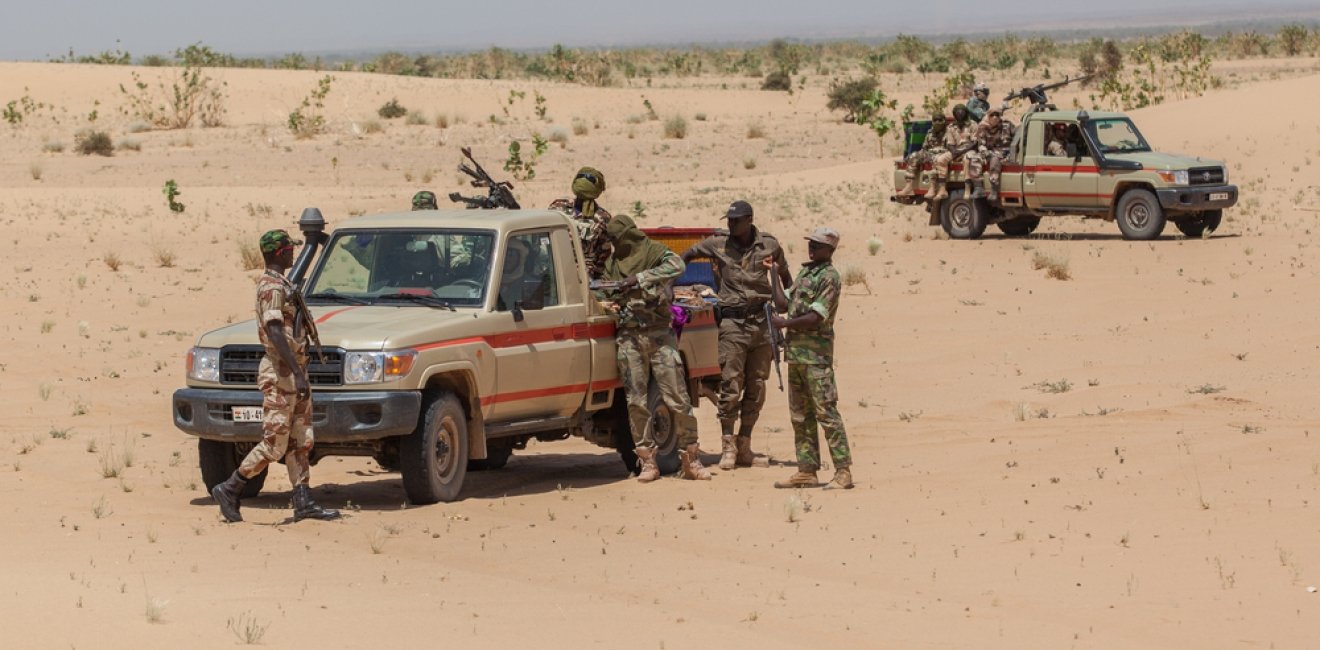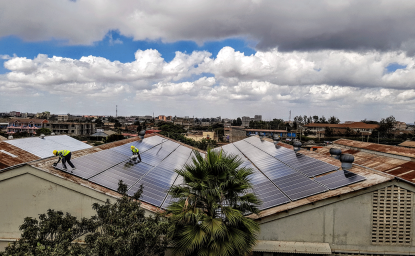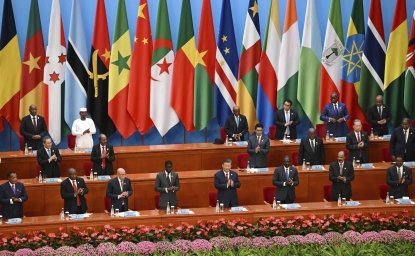
A blog of the Africa Program
Over the past decades, radicalization and violent extremism have become worrisome international security issues across the globe -- particularly in Africa. Since 2018, Africa has become a global epicenter of violent extremism with devastating effects on the lives and livelihoods of many, especially civilians. The African Union (AU) and other regional and international actors have continued to undertake a variety of robust military measures (hard approach) to prevent and respond to this crisis. Yet, the problem persists, leading to worsening instability and human suffering in many parts of the continent. One good yet underrepresented approach (soft approach) to addressing these challenges is community-oriented policing.
AU Missions Against Violent Extremism
The AU has authorized over 25 Peace Support Operations (PSOs) across the continent in the past twenty-plus years to counter violent extremism and help member countries manage and transform conflict. However, most of them have been military-heavy (hard approach) operations and underrepresented the policing component with its community-oriented soft approach. The AU has operated its largest mission, the AU Mission in Somalia (AMISOM) (later changed into the AU Transition Mission in Somalia (ATMIS)), since 2007 with a focus on degrading the Islamic extremist militant group al-Shabaab and building local and national capacities for peacebuilding. Moreover, the AU authorized the Multinational Joint Task Force (MNJTF) in 2014 to fight Boko Haram, an Islamist jihadist organization, in the Lake Chad Basin area, as well as the G-5 Sahel Joint Force in 2017, to respond to the expansion of various extremist groups in the Sahel region and to combat organized crime. However, ATMIS only has added police as its component since 2009. By contrast, the MNJTF and the G-5 Sahel Joint Force have been only military operations, the latter of which is no longer operational following the withdrawal of Mali, Burkina Faso and Niger from the force in 2023.
Radicalization and Violent Extremism in Africa
Despite the AU and other international efforts, which include various United Nations (UN) peace missions, the violent extremism crisis in Africa seems to be deepening more than at any other time. For example, in 2023, the UN warned of the further spreading of violent extremism across the continent. According to the 2024 Global Terrorism Index, half of the world’s 16 top states impacted by terrorism are African. This includes Burkina Faso, Mali, Somalia, Nigeria, Cameroon, Niger, DRC, and Mozambique. A recent report by the Africa Center for Strategic Study indicates fatalities related to violent extremism increased by 20 percent in 2023 in Africa, establishing a new record with more than 23,000 lives lost.
Most of the violent extremists are linked to radical Islamic ideology and they focus on recruiting youth and mobilizing public support. The continent’s major extremist militant groups are al-Shabaab in eastern and southern Africa, Boko Haram in the Lake Chad Basin, and the Jama’at Nusrat al Islam wal Muslimin (JNIM) coalition, and the Islamic State in the Greater Sahara (ISGS) in the Sahel region. A common goal among these groups is to replace secular states and forcefully impose ‘sharia law’ in its entirety.
The source of strength for these militant groups is their recruitment of youth through religious radicalization, the teaching and inculcating of extremist views. Recruiting by extremist groups focuses mainly on Africa’s large youth populations; a 2022 estimate indicates that 60% of Africa’s total population is under 25 years of age. Extremists use often violent and ham-fisted national and international efforts to further radicalize and recruit the youth. According to a United States Institute of Peace study, one of the crucial factors in the success of youth radicalization by Boko Haram has been the harsh tactics and excessive use of forces by government forces. Similarly, al-Shabaab preaches and recruits Somali youth to ‘ridding foreign forces’ from the country, portraying the peace mission and peacekeepers as Christians.
The underlying causes for the proliferation of extremist groups are complex and varied in nature. Religion and political ideology often play a role, but so do weak state structures, discriminatory law enforcement practices, conflict, and organized crime. The extremist militant groups integrate conflict and organized criminal activities by co-opting illicit economies such as taxing criminal enterprises and providing them security, in return. In the Sahel region, for example, terrorist groups like the JNIM are involved in organized criminal activities such as human trafficking, kidnapping, drug trafficking, artisanal gold mining, and cattle and livestock rustling. In Somalia, al-Shabaab collects taxes from illicit economies such as charcoal trade and in return provides protections to criminal enterprises.
Policing in AU Peace Support Operations
Dealing with these types of organized crimes in Peace Support Operations makes the inclusion of policing in the peace mission essential. However, most of the AU peace missions lack policing elements. The absence of policing, which is considered as a soft-approach, in countering violent extremism operations has resulted in less effective human rights observation, local community engagement, local police capacity building, support in crime investigations, and tracking of criminal syndicates. For example, research conducted by the Norwegian Institute of International Affairs on the effectiveness of the MNJTF identified the lack of policing capability as one of the key challenges of the mission. ATMIS has a police component, but it is not sufficient in capacity or number. When the ATMIS military component and Somalia security forces dislodge al-Shabaab from areas through military operations, the liberated areas soon fall again under the control of the extremists due to inconsistent engagement with the local populations and a failure to strengthen security, rule of law, and justice services.
While military operations (hard approach) are important for weakening the military capabilities of extremist groups, policing (soft-approach) is essential to building peace by winning the hearts and minds of local communities. MNJTF recently reported the effectiveness of soft-approaches in countering violent extremism and fostering stability in its mission. The mission’s “non-kinetic operations have been instrumental in persuading terrorists to embrace peace and renounce violence in the Lake Chad area,” the report asserts.
Community-Oriented Policing for Countering Violent Extremism
Community-oriented policing is a soft-approach that has been used successfully worldwide to reduce fear of security threats, prevent crime, and improve public safety. It is particularly effective in preventing and countering radicalization at local levels. The approach encompasses five key descriptive elements: problem-solving, partnership, service delivery, empowerment, and accountability. These elements guide the police officers to establish and build partnerships with local populations based on mutual understanding, trust, and respect. They engage regularly with local residents, community groups, business owners, and other local stakeholders. Community members are best positioned to recognize suspicious activities in their communities -- including radicalization and extremism activities -- and to inform the police officers promptly. Through such stronger community policing partnerships, the police can proactively detect suspicious activities, solve crime and violence problems, and build communities’ resilience to violent extremism.
The effectiveness of community-oriented policing in combating extremism has been recognized globally. The UN Security Council, in its Resolution 2185(2014), highlighted the importance of community-oriented policing institutions with well-trained police officers “to help countering violent extremism, including through building trust and dialogue between state authorities and communities.”
Conclusion
All things considered, pursuing robust community-oriented policing efforts will significantly help Africa in combating radicalization and violent extremism. Given its value, it is time for the AU and member states to prioritize community-oriented policing as a soft approach in Peace Support Operations. The AU should revisit the low practice of police deployment within Peace Support Operations, and strengthen the capacity and deployment of police elements in all peace missions. This requires also member states to reform their police organizations and train all their police officers in community-oriented policing.
Author

Senior Researcher, Institute for Security Studies (ISS)

Africa Program
The Africa Program works to address the most critical issues facing Africa and US-Africa relations, build mutually beneficial US-Africa relations, and enhance knowledge and understanding about Africa in the United States. The Program achieves its mission through in-depth research and analyses, public discussion, working groups, and briefings that bring together policymakers, practitioners, and subject matter experts to analyze and offer practical options for tackling key challenges in Africa and in US-Africa relations. Read more





